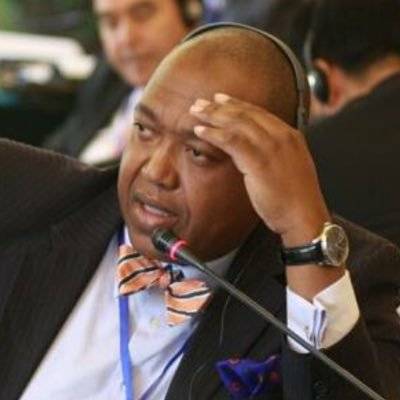Donald Trump met the Prime Minister of Israel in Washington yesterday. The meeting in the White House was followed by a historic press conference between the two leaders. It lasted less than an hour and in that time the hopes of achieving peace in the Middle East were dashed, certainly for the Palestinians.
Benjamin Netanyahu accused the Palestinians of hatred and of teaching their children hatred, claiming that the education system pivots around the destruction of Israel. When Trump’s turn to speak came, he continued with the tirade without making exceptions. Nobody, of course, challenged their twisted narrative.
The conference was historic in many ways. It provided Trump with his first opportunity to set out his position on the Israel-Palestine peace process. Some very important developments arose which look set to define US foreign policy on the issue.
Also read: Trump has not killed the two-state solution, it died long ago
The US president’s comment about Israel’s illegal West Bank and East Jerusalem settlements caught Netanyahu and, indeed, the audience unawares. “I’d like to see you pull back on settlements for a little bit,” he told the Israeli leader. Netanyahu was visibly flabbergasted. Given that Trump has embraced a transactional and megaphone approach when dealing with various issues, was this the beginning of a negotiation process?
The second development was a change to the long-held policy of the US regarding the two-state solution. This was possibly the only question for which Trump had prepared. “I’m looking at two-state and one-state and I like the one that both parties like,” he said. “I’m very happy with the one that both parties like.”
The press conference then took a very amateurish turn as he offered several off-the-cuff explanations which raised serious concerns. Does Trump understand what is at stake in revising America’s position on this issue? It departs from years of US diplomacy regarding the final status of the Palestine-Israel conflict and goes against the generally-held international position, including that of the UN. At a stroke, the US president looks set to create global political chaos.
This new position presents several complicated possibilities, each with insurmountable challenges in Palestine. Many Palestinians already see the two-state solution as impossible to achieve given the ongoing land grab by Israel’s illegal settlements in the occupied Palestinian territories. The alternative of a single, secular, democratic state between the river and the sea would mean the end of the distinctly Jewish state. It is thus difficult to see Israel ever agreeing to a one-state solution.
The status quo could be maintained, of course, which is effectively one state with two systems; one for Jews and one for Palestinians. In other words, an apartheid state. The stigma that would attach to this probably means that that most reasonable Israelis would reject the idea. The Palestinians are also likely to reject such a solution. Furthermore, maintaining the status quo is most likely to encourage the boycott, divestment and sanctions (BDS) movement and additional political pressure on Israel.
Read: Abbas says to Trump ‘We are still committed to two-state solution’
Trump went on to talk about his son-in-law, Jared Kushner, who he has appointed as one of his special advisors; he will also lead on US peace initiatives in the Middle East. What was very obvious during the press conference is the affection both Trump and Netanyahu feel for Kushner. The president spoke of Kushner’s Jewishness, as if that qualifies him to be the best candidate to be a peace broker in the region. Moreover, it seemed to come as quite a shock to many in the audience to learn that Netanyahu and Kushner have had a long-term connection. “Can I reveal how long I have known you?” the Israeli prime minister asked Kushner. “He was never small, he was always big,” he retorted.
How can anyone who is that close to Israel and its leader ever be an impartial mediator in this matter? The answer, of course, is that he doesn’t have to be; it is always going to be Israel’s position and interests – under the veneer of “security” – which will be prioritised by any US official.
Finally, when Donald Trump was asked about the US intention to move its embassy from Tel Aviv to Jerusalem he insisted that it is being considered carefully. Although it is being put off for the moment – some commentators have suggested that this is at Israel’s request, to divert attention towards less controversial matters – the US president remains resolute in his stance. When – this is probably not the time for an “if” – the embassy is moved, it is likely to send shock waves around the world. It will almost certainly trigger anger and violence not only in the Middle East but also other parts of the world with Muslim majority countries.
The amazing – and amazingly sad – thing is that Donald Trump seems to be totally oblivious of such possibilities. Or perhaps he just doesn’t care. Either way, his new position and that of his administration in Washington is very likely to create political chaos.
The views expressed in this article belong to the author and do not necessarily reflect the editorial policy of Middle East Monitor.












